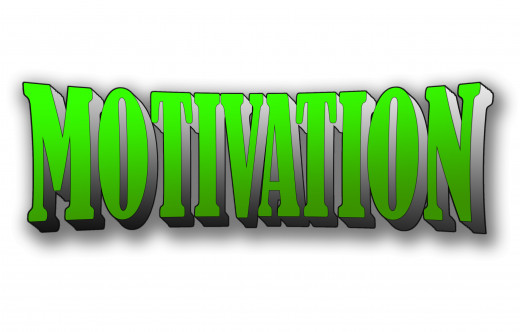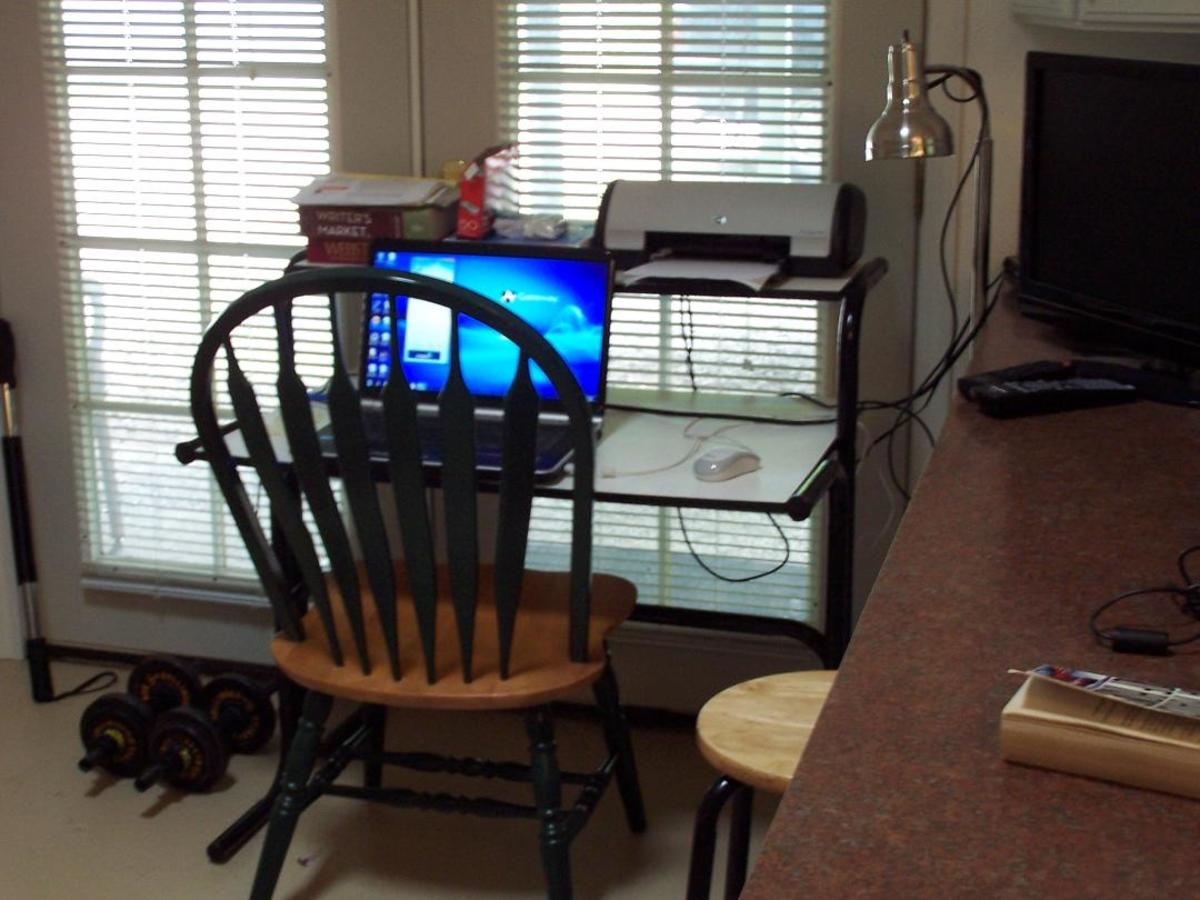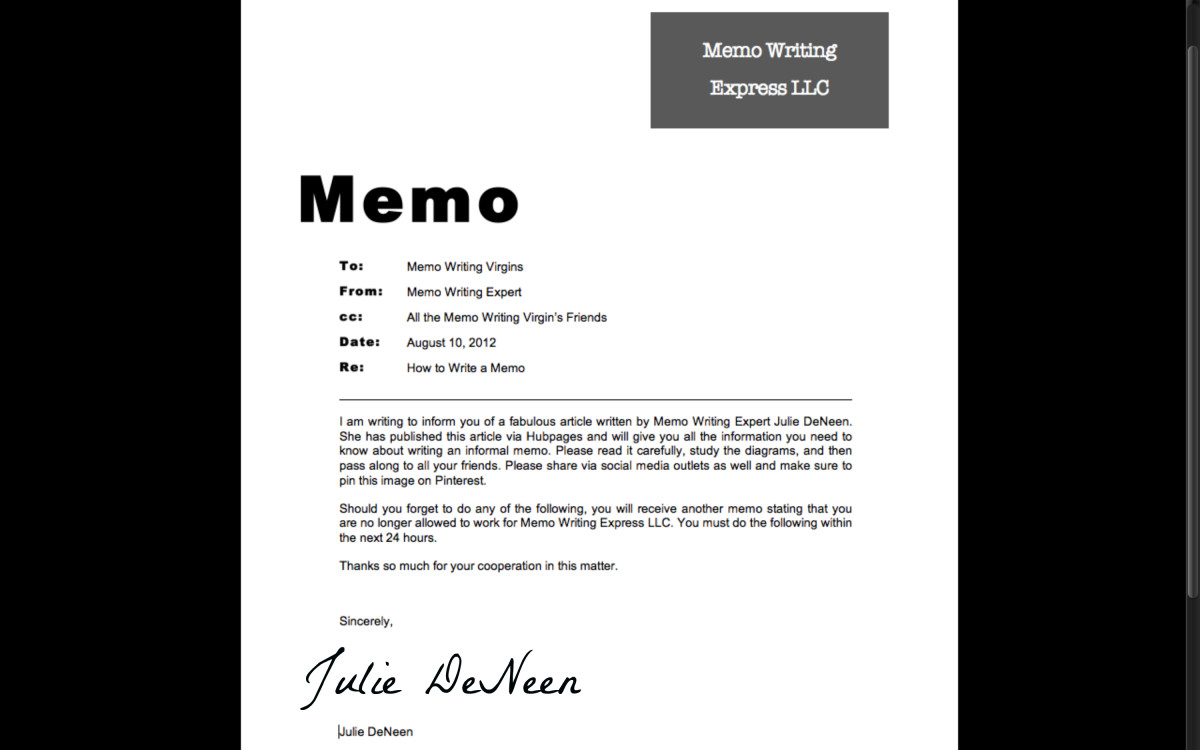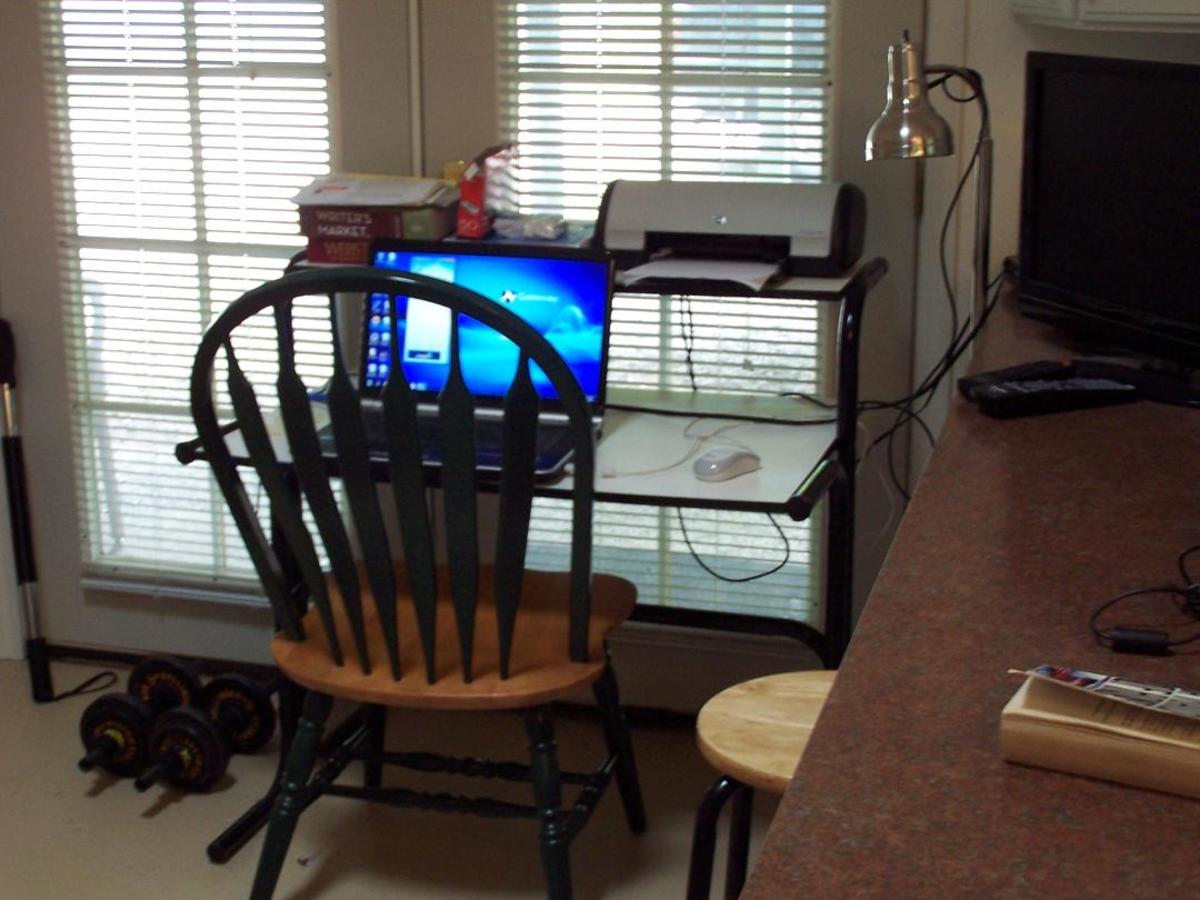How to Motivate Yourself to Write When You Just Can't Get the Words Out

One of the hardest things that any writer has to deal with (besides writer's block) is finding the motivation to continue writing even when they know what they want to write about. Sometimes writing can feel like a chore or a hassle rather than something that is fun to do. One of the ways that you can overcome this issue is to discover the real reason behind why you want to write in the first place. Reasoning with yourself will eventually lead to motivation and inspiration. However, as previously stated, this task is not always easy to accomplish. So in an effort to help myself, and others, I have created this article to document some tips and methods that I have used to find the motivation to write when I am feeling tired or unenthusiastic.
Discover Why You Want to Write
Go ahead, ask yourself this question. Why do you want to write? Is it because you want become recognized for your words and ideas? Do you want to improve society and change people's perceptions? Perhaps you want to use your literary skills to earn a living? Whatever your reason is, this is one of several key things that can help to motivate you to write. Once you know why you want to write, it will become much easier to achieve success in your. So take a moment to think about why you are hitting those computer keys in the first place.
Make Things Enjoyable
If you find yourself having a difficult time writing, it may be because you aren't enjoying the particular topic you are writing about. Or maybe you attempt to force yourself to write to the point that it is no longer fun. Don't write when you are stressed out or under a lot of pressure. Just like you aren't your best when you're in an emotional state, your writing won't be great either. Also, it's a lot easier to write about something that excites you or that you are passionate about than it is to write about a boring topic. Remember, writing that is fun is also easy to do!

Take a Break
If your mind is not able to be productive, then it may be time to take a short break. A brief moment relaxing in the sun or playing a game can be just what you need to get things flowing again. When you are on your break, you should focus on trying to relax and attempting to slow your mind down. A rested and clear mind is one that is ready to go and produce some really great writing when the time comes.
Set Reasonable Goals For Yourself
When I first joined HubPages, I set multiple goals for myself that were both realistic and challenging. One of those goals was to write and publish at least 100 hubs within my first year of being a member. I achieved this goal just 1 day prior to my one year anniversary. Had I not set a goal for myself to guide me toward success, it's very likely that I wouldn't have published as many articles as a did. As you can see, setting goals is a great way to motivate yourself to continue to write.
Prepare a Writing Schedule
If you're like me, you know how busy and hectic life can get. A busy (and full) schedule can make it very difficult for anyone to write. Often times when you do get a break, you are too tired or unmotivated to actually write anything. To help curtail this problem you can try scheduling yourself time to write. I used to commit myself to writing at least 3-4 hours a night every Monday, Wednesday, and Thursday. This helped ensure that I would meet my goal of creating 100 hubs in a year. If you're just too busy to make room in your schedule to write, perhaps you could find ways to multi-task while you are running errands or waiting for other people.
Get Important Things Done First
Sometimes it's tough to sit down and write when in the back of your head you are thinking about getting chores done, running errands, or what you have to do later. In this case, it's pretty pointless to try and write anything worthwhile. A distracted mind is one that won't be able to produce the quality or quantity of writing that is needed for success. So instead of trying to force your creativity to work when it's not ready, it may be best to tackle the important problems that are bothering you before attempting to write. Motivating yourself to write should be much easier when you don't have any nagging chores or errands to do.
Get a Little Caffeine
How can caffeine help to motivate oneself? Well if you are really tired, you'll find yourself that it is difficult to motivate yourself to do anything. A little caffeine can go a long way to helping your mind and body prepare itself to start writing. As most people know, caffeine in moderation has been shown to improve your ability to complete tasks.
Keep Writing
At first this piece of advice doesn't seem to make sense, but hear me out before you pass judgment. If you can't motivate yourself to write one thing, then why not try to write something else. Even writing your mother or best friend an email is still considered writing. The idea here is to prevent yourself from losing your writing momentum. The longer you wait to write something worthy of publication, the harder it becomes to get started. This is similar to staying on a diet - the longer you go without dieting, the harder it becomes to start.

Keep a Writing Journal/Blog
Here is a great idea that was inspired by a friend of mine recently. If you keep (and regularly update) a blog or journal that chronicles your writing journey, you'll find that it is much easier to continue writing. Be sure to discuss what you were feeling on any particular day and what you wrote about. Discuss your accomplishments for the day as well as your writing downfalls. Keeping a journal will help you to organize and analyze your thoughts, writing strategies, and progress towards success. In addition to this, readers that comment on your blog will able to offer support and motivational words to keep you going.
Take Baby Steps
This tip is similar to some of the previous ones mentioned in this article. Let's say you want to write a ,1000 word essay to post online but can't seem to get started. Try telling yourself that you won't write the entire thing now, you just want to write one paragraph. Begin by just writing an introduction or summary of what you want to say. After that you can take a break and then return to expand upon your original writing. I believe that you'll find this method very effective at getting the words out of your head and onto the paper so to speak.










